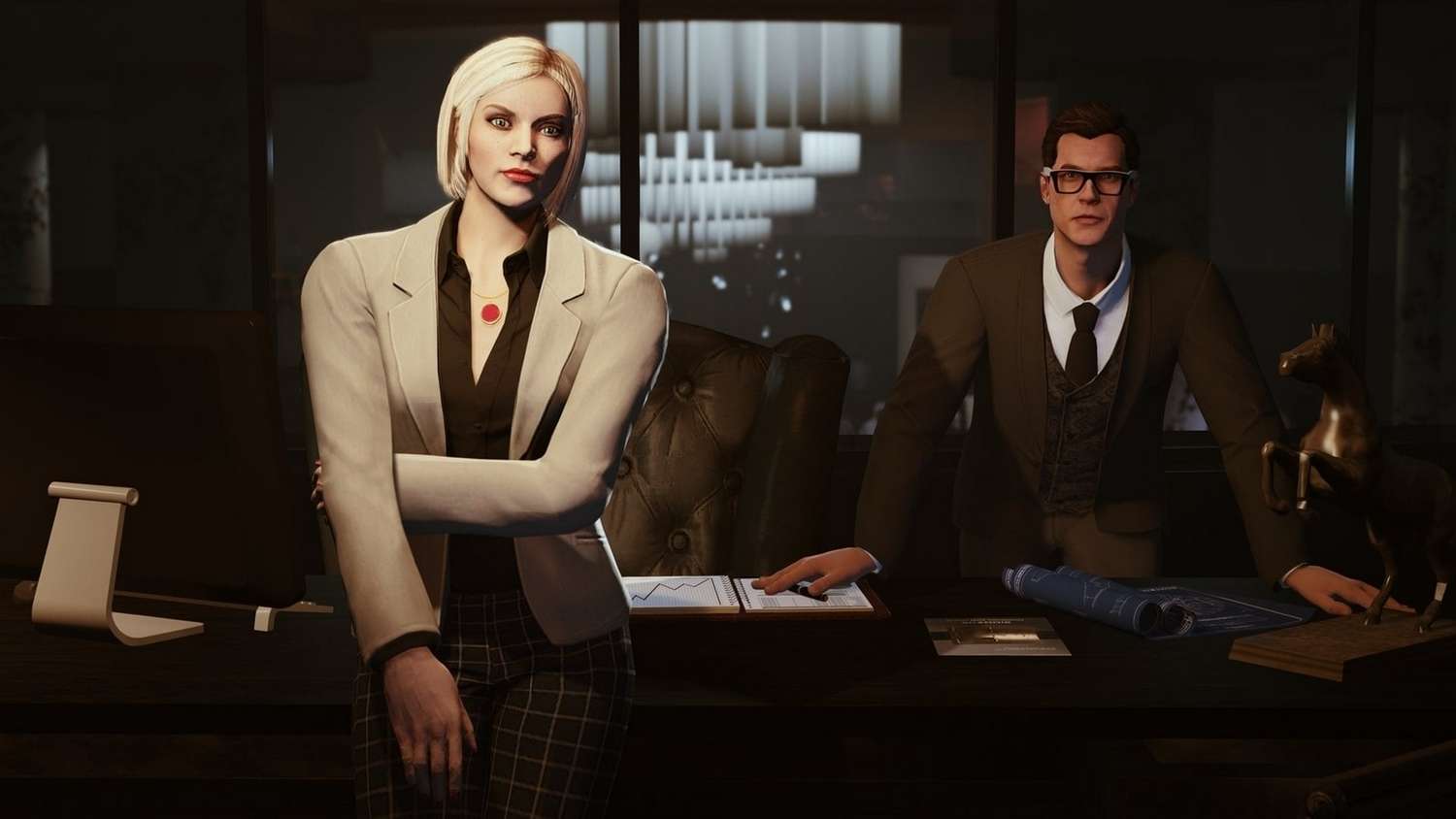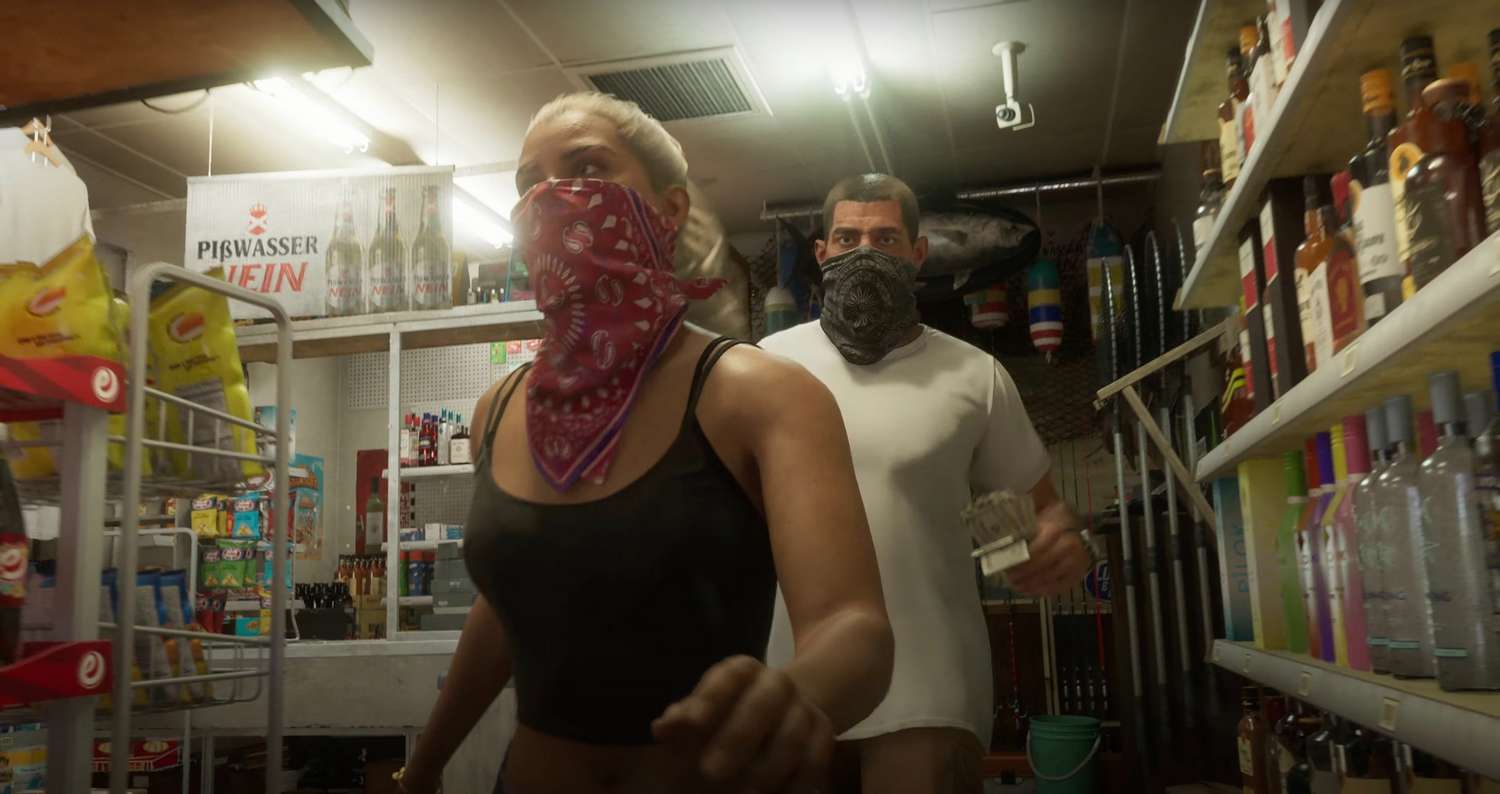Industry Upheaval: Rockstar Games Staff Firings Spark Union-Busting Controversy Ahead of Grand Theft Auto VI Launch
Popular Now
 BeamNG.drive
BeamNG.drive
 Auto X Drift Racing 3
Auto X Drift Racing 3
 Minecraft
Minecraft
 EA SPORT FC 25
EA SPORT FC 25
 God of War Ragnarök
God of War Ragnarök
 Toca Boca World
Toca Boca World
 Valorant
Valorant
 R.E.P.O
R.E.P.O
 Warframe
Warframe
 Poppy Playtime
Poppy Playtime 
NEW YORK/LONDON – Rockstar Games, the world-renowned developer behind the highly anticipated Grand Theft Auto VI (GTA 6), has recently made international headlines, not for a game trailer, but for a controversial round of staff terminations. Reports confirm that between 30 and 40 employees across the developer’s UK and Canadian offices were dismissed, igniting a fierce debate and legal challenge over alleged union-busting tactics just months before the scheduled May 26, 2026, release date of the company’s next blockbuster title.
This escalating controversy pits the Independent Workers’ Union of Great Britain (IWGB) against Rockstar’s parent company, Take-Two Interactive, in a high-stakes disagreement over employee rights and corporate conduct in the fiercely competitive AAA game development landscape. This is a story with major implications for the entire video game industry labor movement.
Strong Allegations of Targeted Dismissals
The core of the dispute revolves around the nature of the terminations. The IWGB has leveled a scathing accusation, calling the dismissals “the most ruthless act of union busting in the history of the UK games industry.” According to reports from Bloomberg, all of the affected workers were allegedly either current union members or actively participating in a private Discord channel dedicated to discussing unionization efforts at the company. The union’s claims suggest a deliberate, coordinated effort to dismantle organizing attempts within the studio.
IWGB President Alex Marshall publicly denounced Rockstar, stating this action showed a “flagrant contempt for the law and for the lives of the workers who bring in their billions.” The union also highlighted the vulnerability of some dismissed staff, including those on Rockstar-sponsored visas who now face immigration jeopardy, and individuals with medical conditions who have lost access to essential workplace healthcare schemes.
The union has vowed a protracted fight, promising to pursue legal avenues under UK employment law to secure the reinstatement and interim relief for its affected members.
The Corporate Defense: ‘Gross Misconduct’
 In direct response to the powerful union allegations, Take-Two Interactive, Rockstar’s owner, vehemently denied any connection between the firings and union activity. A spokesperson for the parent company asserted that the terminations were “for gross misconduct, and for no other reason.”
In direct response to the powerful union allegations, Take-Two Interactive, Rockstar’s owner, vehemently denied any connection between the firings and union activity. A spokesperson for the parent company asserted that the terminations were “for gross misconduct, and for no other reason.”
However, Take-Two has declined to provide specific details regarding the nature of the alleged gross misconduct. This lack of transparency has fueled speculation and skepticism across the gaming community and labor organizations. Analysts suggest one possible, though unconfirmed, motive for the company’s action could be an increased security crackdown following the massive GTA 6 leak of 2022, and the company’s recent mandate for all employees to return to the office full-time, which was justified partially on security concerns.
Many industry observers find it difficult to believe that between 30 and 40 employees—a number that includes critical roles in quality assurance and support—would simultaneously commit a fireable offense just as the project is in its final development stages. The timing and scope of the firings have only intensified the spotlight on corporate labor practices.
Impact on GTA 6 Development and Release Confidence
The internal strife comes at a particularly delicate time for the highly anticipated Grand Theft Auto VI, which is projected to be one of the largest entertainment launches in history, driving substantial investor value for Take-Two Interactive. The game, initially expected earlier, was officially delayed to May 26, 2026 earlier this year, a decision that already caused a temporary dip in the company’s share price.
The developers involved in the massive project—a number expected to exceed 4,000 contributors by release—are navigating a stressful final push. The recent return-to-office mandate, previously criticized for contradicting promises of flexible working conditions, was intended to boost productivity and secure the final product. These firings, however, risk an opposite effect, potentially damaging staff morale and causing further instability.
- Release Date Status: As of the latest official announcement, Grand Theft Auto VI is scheduled for May 26, 2026.
- Development Stage: The game is reportedly in its final, high-pressure stages of development, often referred to as ‘the home stretch.’
- Internal Concerns: Previous reports have detailed employee fears over potential crunch culture and the impact of mandatory five-day office work on health and work-life balance.
The removal of dozens of staff members, particularly in critical areas like Quality Assurance (QA), raises valid questions about whether the sudden gap in personnel could create minor disruptions or potential quality control issues in the lead-up to the global launch. While Take-Two assures investors that they “fully support Rockstar’s ambitions and approach,” the controversy is an undeniable and unwelcome distraction.
Broader Context: Labor Movement in the Gaming Sector
These events at Rockstar Games are not isolated. They occur amidst a broader, ongoing wave of layoffs across the global gaming industry, which has seen thousands of jobs cut despite record revenues. In this context, the efforts by workers to organize and unionize for better job security, fair compensation, and improved working conditions—issues like controlling developer crunch—have gained significant momentum.
 The IWGB and other labor groups have been vocal about the need for systemic change, arguing that the astronomical revenues generated by blockbuster games like those in the Grand Theft Auto series must be reflected in stable, humane working conditions for the developers. The battle at Rockstar is now being viewed by many as a critical test case for the strength of the burgeoning game workers union movement against major corporate entities.
The IWGB and other labor groups have been vocal about the need for systemic change, arguing that the astronomical revenues generated by blockbuster games like those in the Grand Theft Auto series must be reflected in stable, humane working conditions for the developers. The battle at Rockstar is now being viewed by many as a critical test case for the strength of the burgeoning game workers union movement against major corporate entities.
The allegations of union-busting underscore the tension between corporate imperatives—such as meeting the massive financial expectations for a game like GTA 6 and maintaining strict secrecy—and the growing demand for worker power and protections. This story is a defining moment for the future of labor relations in tech and the entertainment software sector.
The ultimate outcome, whether through legal action or public pressure, will undoubtedly set a precedent for how worker organizing is handled at major video game publishers moving forward. For now, the development of one of the most anticipated video games of the decade is overshadowed by a very real and serious labor dispute.









